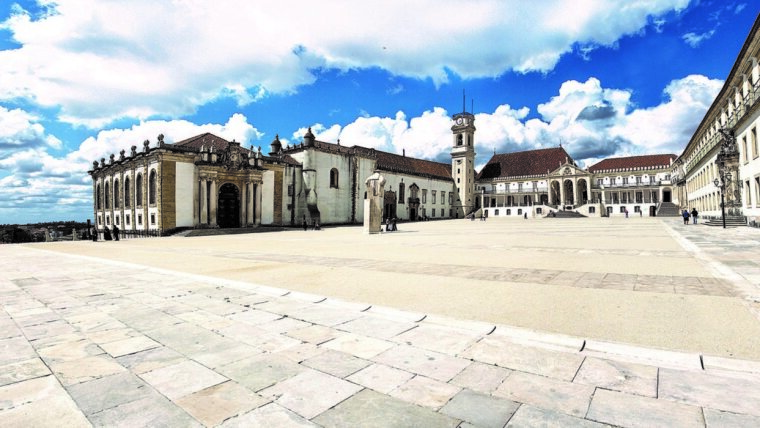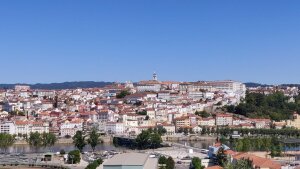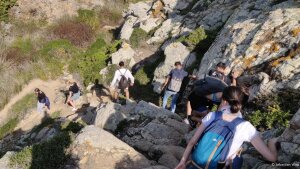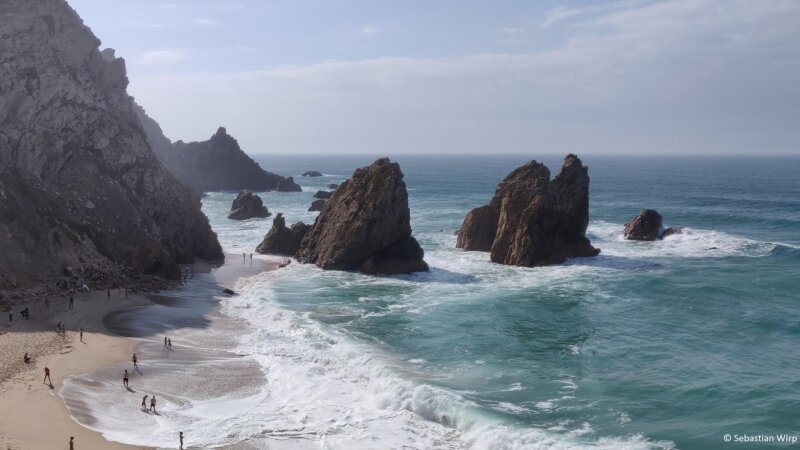
Sebastian Wirp - 2019/2020
Coimbra
Image: Sebastian WirpBefore departure:
In the winter semester 2019/20, I had the pleasure to study at the Universidade de Coimbra. After my faculty nominated me as an exchange student at the FEUC (Faculty of Economics at the UC), I got an email for an online application. The steps and needed documents were clear and I went through the process without any problems. If you want to participate at the Portuguese language class for Erasmus students, you must apply fast, because the places are limited. If you get a timeslot that does not work for you, it’s not a problem. All my friends were able to change into another class. I searched for a flat in advance, which was pretty easy, because there are many Erasmus student houses on Facebook. These houses are rather expensive (€300) compared to what you can find if you come one to two weeks beforehand (€200). You should find a nice flat without any problems. Do some research on which campus you’ll have your classes and make sure that you don’t live to far from Praça da República, as you’ll probably spend many nights there. In addition, the guys from ESN Coimbra are nice and always trying to help you with any issue. They have many connections to landlords and student houses, so don’t hesitate to ask them. I also recommend to follow them on Facebook and to join the WhatsApp group. They organize many fun events throughout the semester.
Arrival:
I arrived in Coimbra at the beginning of September. I landed in Lisbon, but you can also fly to Porto. The connection between these cities and Coimbra are both good and the time you travel from both of these cities is about the same. The websites for the trains (cp.pt) and busses (rede-expressos.pt) are both in English. I highly recommend arriving in Coimbra as early as possible. Many exchange students already come in the first week of September, so you’ll have the perfect opportunity to meet new people even before the university starts. In September, ESN Coimbra organizes a complete welcome month with a wide range of activities (from parties to weekend-trips). I recommend to buy the ESN Card (€10 in the first weeks, later €15), which gives you many benefits, not only for the ESN organized activities but also for some surfing schools at Praia de Costa Nova, discount for Ryanair flights, etc.
In the first weeks, you’ll also have the welcome session at the university. There, you’ll get all information regarding your classes and organizational stuff. If you have any questions left unanswered, you can go to the international office of the FEUC. They’re always kind and helpful.
Coimbra
Image: Sebastian WirpUniversity, classes, exams:
The university is different from what I was used to in Germany. Attendance is mostly mandatory and active participation is expected. Often the participation is part of your final grade. Throughout the semester, I had to write many essays and make a couple of presentations. Some exams are even before Christmas. The final exam made up the biggest part of the final grade. I only visited classes, which were taught in English, but there aren’t many. Most of the classes are taught in Portuguese. The offer of English speaking classes is, however, bigger for master courses. Even if you’re doing your Bachelor’s degree you can visit the master courses.
The professors and teachers are quite nice and try to help you with any issue you might have. If you struggle with something or if there are things that you don’t understand, don’t hesitate to a talk to them. Especially in the English lectured classes they’re used to Erasmus students and the struggles they have.
Leisure:
Portugal is sunny and warm during September and October. With the ocean not far away and many opportunities to do short trips, it’s ideal for exploring the country, swimming and enjoying the time outside. Coimbra is a student city and you can feel the positive energy on the streets. When you walk through the city, you’ll find musicians playing music and people sitting around, listening and drinking wine. Also, Coimbra has many little bars and cafés where you can sit outside until late. In November, however, the weather changes. It can rain for days and it gets colder. Because the houses are rarely well isolated, it is getting pretty cold inside, too. I can remember many days when it felt colder inside than outside, because the temperature was dropping at night, cooling the houses down, and the days weren’t warm enough to heat them up again. Also, most houses have no installed heating system, so ask your landlord for a mobile heater early enough.
In a nutshell:
The five months in Coimbra were some of the best in my life. The country enchants you with its beautiful nature and lovely cities. The warm and sunny weather of the first months invites you to be active outside. However, the best of all of it are the loving, warm and kind people.
Coimbra
Image: Sebastian Wirp

